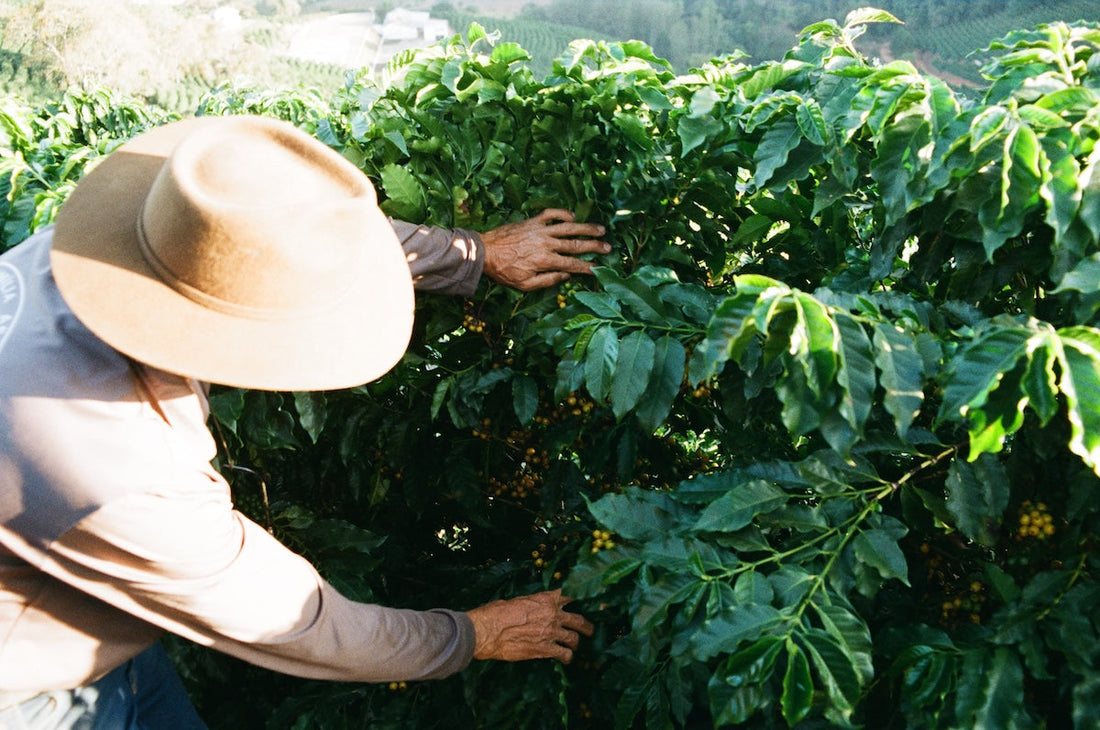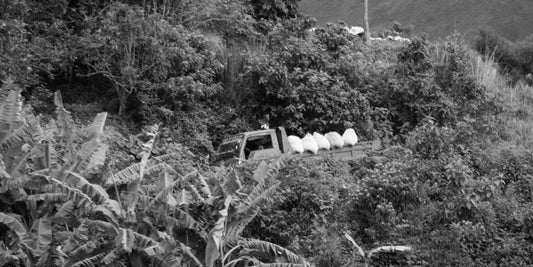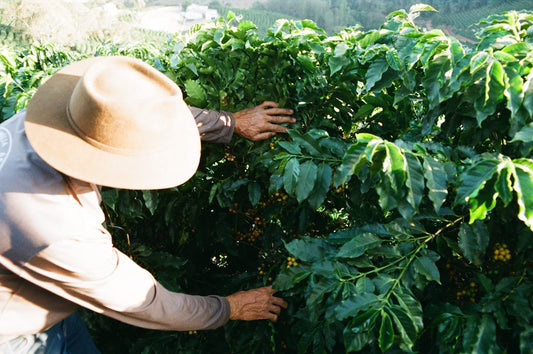
Brazil: the harvest the world watches
There’s a saying in coffee: when Brazil sneezes, the rest of the world catches a cold. It’s true. Brazil is the largest producer of arabica on the planet and whatever happens there ripples through the entire coffee market. The success of its harvest can send global prices soaring or crashing.
When we visited in July 2024 the industry looked very different to how it does now. In the year since, prices have swung hard, volatility has spiked and uncertainty has become the norm. But one thing hasn’t changed – our commitment to buy coffee in a way that steps outside the old systems and puts long-term relationships before global market whims.
Our trip to Brazil was also part of a bigger commitment – to keep learning, to understand the challenges on the ground and to buy in a way that creates long-term impact.

Challenges in Brazil
It’s easy to talk about “coffee origins” as if they’re all alike. But that couldn’t be further from reality. In Brazil the farms aren’t just big – they’re massive. Coffee alone covers close to 27,000 km² of land, nearly the size of Belgium (30,700 km²). Infrastructure and market access are stronger too.
Seeing Brazil on the ground also put into perspective how different it is from origins like Peru or Honduras. Farms here operate on another scale altogether.
That doesn’t mean it doesn’t face its challenges. Instead of worrying about covering costs when the C-market dips, producers here are wrestling with droughts, falling yields and labour shortages. When we visited the country was already in the grip of a severe drought. Twelve months on it continues to cut yields and threaten future harvests.
But there is hope. Farmers are adapting – investing in water reservoirs, planting more resilient varieties and rethinking shade cover to protect trees. Others are moving towards better soil management to hold moisture for longer. None of this fixes the drought overnight, but it shows how producers are working to secure their future.

Pico Mirante
This was our first visit to Pico Mirante, run by Adolfo Vieira and we were welcomed like family. It’s hard to explain what makes a great producer–roaster relationship, but sometimes you just know. We’d seen other farms where the tours felt routine. Here, it felt genuine.
Adolfo runs his farm with care. His team greeted him like family and they return year after year – a telling sign in a country where many farms struggle with labour shortages. He’s swapped petrol-powered harvesters for quieter battery versions, kept natural forest among the steep slopes and created a culture where stopping for a game of table football with staff felt normal. These choices aren’t for show – they shape the way the farm works.
Unlike the endless neat rows we saw elsewhere, Pico Mirante’s steep slopes are alive with shade and forest. And the coffee showed that when we cupped it. We couldn’t say no to taking it on as our single-origin Brazil for the foreseeable future.

Sertãozinho & Cocarive
For The Truth blend we wanted to take a different path. Instead of working with an already established farm, we looked at how we could support smaller producers who usually get squeezed out. It’s the same idea as buying milk from a small local farm or choosing fish from small boats instead of trawlers – it just makes more sense. We believe that’s the better way to do business.
That’s where Sertãozinho comes in – a community of small farmers working the slopes around the village. Led by Paula Rocha, they pool their harvests through the Cocarive co-op. Paula plays a vital role, making sure quality is upheld and that premiums are invested back into the community rather than disappearing into individual pockets.
Visiting Cocarive brought it to life. Their setup was spotless, professional and geared to give smallholders a fair shot against the industrial-scale neighbours who can undercut them. Walking through the warehouse and seeing how carefully the lots are handled gave us confidence. This isn’t about volume for the sake of it – it’s about building a system that lets small family farms survive and thrive.
The coffees from Sertãozinho are exactly the kind of blend components we want – traceable, community-driven and excellent quality. Bringing them into The Truth is our way of spreading impact beyond a single farm, helping more producers benefit from the value their work deserves.

One year on
Today, our trip to Brazil still shapes how we buy coffee. Pico Mirante gives us consistency and quality at single-origin level. Sertãozinho and Cocarive let us support smaller farms and wider communities through blends.
The market has shifted dramatically since we were there. Prices are volatile and uncertainty is high. But the relationships we began on that trip are steady. And that’s what matters most.




